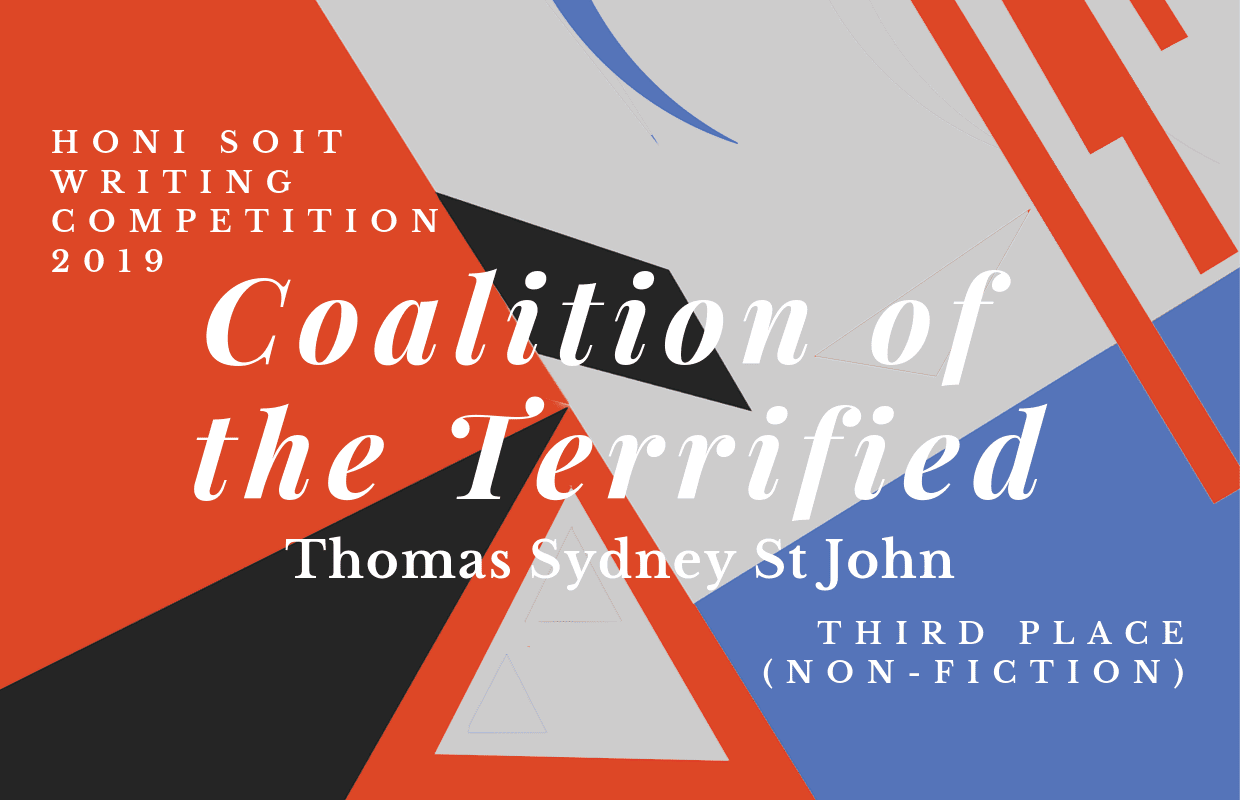This entry was awarded third place in the non-fiction section of the Honi Soit Writing Competition 2019, judged by New York times journalist Isabella Kwai.
They gathered at intersections and roundabouts, marching with the confidence of a crowd that knew they would be tomorrow’s headline. The disparate many that make up the gilets jaunes have an undisputed flair, adorned in high-vis regalia and possessed of a notorious temper, a narrative that moved around the planet with the speed we’ve come to expect of tweets and live-streamed video. They mostly hail from the rundown cities that lend their small-font names to the spaces on maps between one affluent metropolis and another.
Fuel wasn’t cheap in France, but President Macron’s plans to transition the economy away from carbon emissions culminated in plans to levy a new tax on diesel and gasoline. In the eyes of many around the world the protesters were little more than the stubborn resistance we have come to expect from enemies of progressivism; bigoted hicks, junkies for coal, holding us back.
And so they rebelled. They broke shopwindows and brawled with police, the leaderless mob engaging in spontaneous ‘mobilisations’ in provincial cities across France. The op-ed class happily dismissed their concerns as the myopia of the drooling masses, their violent insurrection proof in itself of the invalidity of their claims. Many young progressives from around the world shrugged their shoulders and agreed for lack of anything better to say on the topic.
Then on March 18, in our own country, a young boy tried to make an omelette using a racist senator’s head. Rightly so, a generation celebrated a protest that fell somewhere between hijinks and praxis. We were, of course, not uniform in our national response — the civility cops were quick to feign outrage that a senator could ever be treated with such wanton disrespect (think of The Children!).
The two events viewed together might not have immediate resonance, but I suspect there is something that unites the crowds of gilets jaunes and the supporters of eggboy, something that perhaps reveals something about the nature of civil disobedience in the world today.
The gilets jaunes are the natural outgrowth of a class of people who are incessantly watched but never heard. Eggboy, likewise, represents the moral revolutionaries that have long been marginalised in Australia — Indigenous Australians, immigrants, and, to an extent, young people. As Hannah Arendt wrote in 1968, “for the first time in history, all peoples on earth have a common present.” But where the millennials expressing their support for eggboy are acting as a rejection of the values of the past, the gilets jaunes and people of their ilk are scared of the future. Together, we make an awkward coalition of the terrified.
I’m always hesitant to try to reference Foucault in just about any setting. Trying to explain why Foucault was brilliant is like trying to explain why a joke is funny, and trying to condense his rambling sentences into palatable morsels through ellipses just reads like he formulated all of his theories while constipated (‘Power… is… a mechanism… by which… we, as human beings… attempt’ etc.). Despite this, his work is precisely what best describes the yin-yang of authority and repression that undercuts our many attempts at civil disobedience in the 21st century. Rebellion’s only hope of effectiveness relies on the assumption that we make our world, and not the other way around.
If there’s another similarity between these jumbled groups around the world, all fighting against a ruling class co-opting ideologies and esteemed institutions as the anti-majoritarian rearguard of their dying movement, it’s the draw to nihilism. It’s easy to assume that there is little use or hope for the losers in this game.
In the wake of the Cold War, history was pronounced to be over. The ideology of liberal internationalism had succeeded, and people were told to wait while the world improved around them. All we had to do was sacrifice participation in democracy and allow the enlightened technicians of our world to fix the planet for us. This fiction lies in ruin, and (pardon the financial analogy) we are now rushing to recover the cost we paid for a good we never received. The ensuing panic has blurred what we thought were the fault lines of modern discourse — between conservative hipsters and progressive nihilists, it’s hard to imagine we ever had solidarity at all.
But that’s probably where some hope lies. People poised to profit from the inertia of the world toward mayhem would love nothing more than for us to be immobilised by transient distaste and propaganda. It’s hard to tackle the banal evil of the political class because it’s easy to advocate for nothing. People make careers out of it in Canberra. Atomised rebellion is doomed to fail, but the true enemies of progress are smart enough to pick their battles. We need to do the same.





